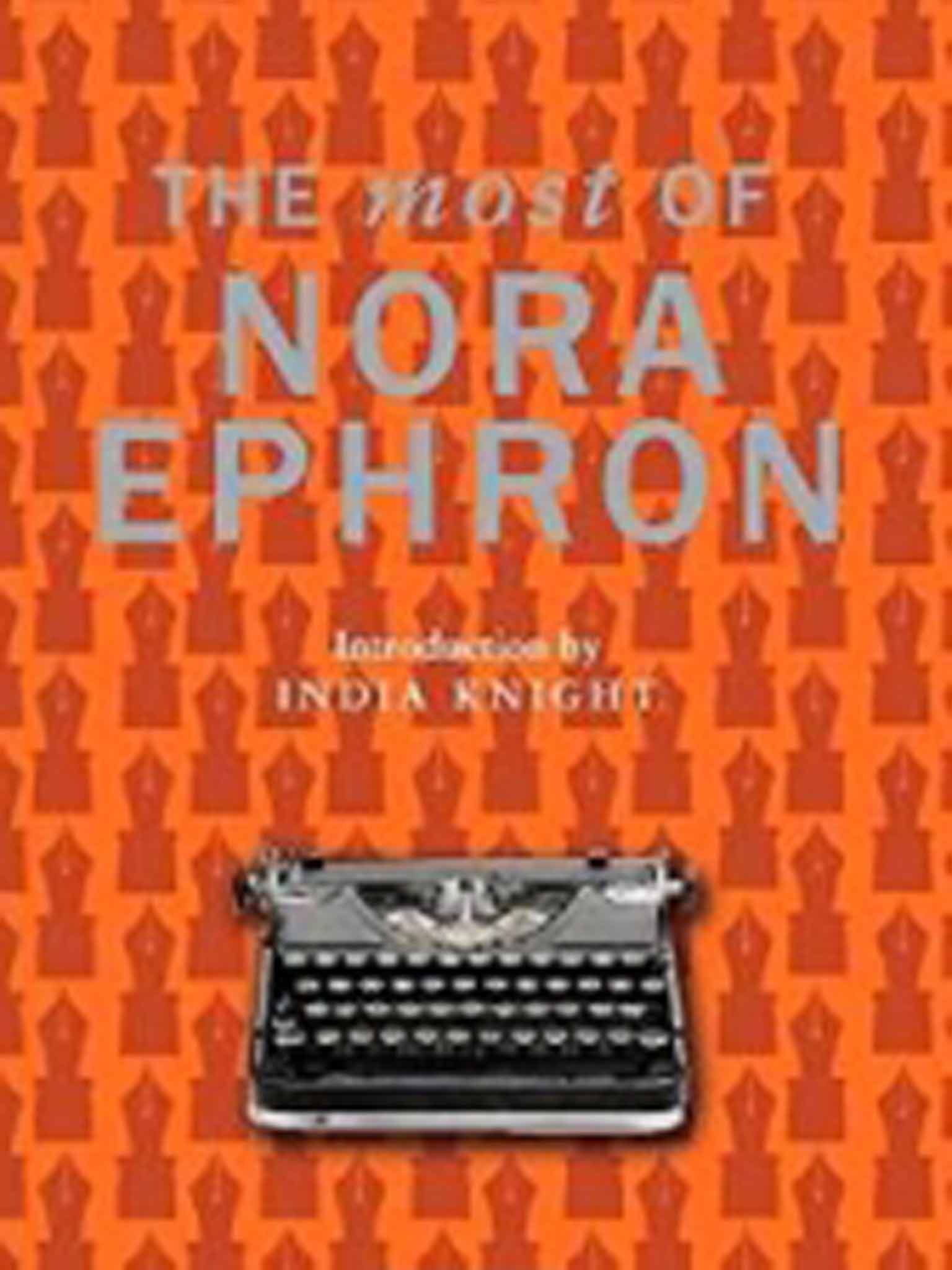It's always interesting to learn that somebody who we think of as an insider was once an outsider. How surprising, for instance, to read that Joan Didion grew up in a house where there were few books or that the celebrated film critic Pauline Kael balanced writing with part-time jobs well in to her forties.
Unlike either of these fellow American journalists, Nora Ephron, who died in 2012 aged 71, was a natural insider. "I have achieved my life's ambition, and I am 22 years old," she writes of working as a reporter on a New York newspaper. She'd previously been an intern at the Kennedy White House and grown up in Beverly Hills where her screenwriter parents threw parties which Dorothy Parker attended. Her first husband was Carl Bernstein, one of the journalists who broke the Watergate scandal.
Ephron has been criticised for writing exclusively of the dramas of upper-middle-class life and, while India Knight argues in her introduction that this isn't indicative of "fatal frothiness", it's probably easier to see lessons in the mess if you can employ a cleaner. That said, while Ephron writes about the comfortable, she writes for everyone, examining her experiences, making observations which amuse and console on subjects ranging from the everyday to the epochal.
If she ever did struggle to find her way, it was probably while starting out in journalism, in an era when sexism was rife. She went on to work as a reporter before becoming a food writer and columnist, fictionalising the breakdown of her marriage to Bernstein in her novel, Heartburn, and writing screenplays, including When Harry Met Sally.
From feminism to the war on terror, Ephron was a perceptive commentator: "American society has a remarkable ability to… take whatever change has taken place and attempt to make it go away." She recalls her disbelief at learning about the Holocaust as a child then asks: "What are we doing about Guantanamo? Nothing… We're too busy."
Repetitions are common and telling in collections of journalism so readers should pace themselves through this book. However, Ephron is so funny and hospitable that it's tempting to devour it. With a few exceptions, including essays about wanting bigger breasts and feeling bored when getting manicures, it will entertain male readers as much as women.
Her take on divorce – "(It) makes clear something that marriage obscures, which is that you're on your own" – indicates that in the end there are no insiders or outsiders, only people alone in the mess. She was, as one waitress observed, "some writer".

Join our commenting forum
Join thought-provoking conversations, follow other Independent readers and see their replies
Comments